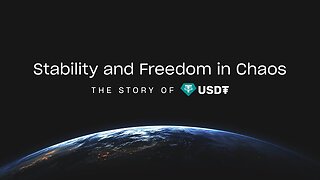Premium Only Content

The Many Ways Our Irrational Minds Sabotage Our Wealth | Dan Ariely, Behavioral Economist
SCHEDULE YOUR FREE PORTFOLIO REVIEW with Wealthion's endorsed financial advisors at https://www.wealthion.com
When it comes to money, because it's so quantifiable, you'd expect people to make very rational decisions.
But they don't. Because we're humans, we're more driven by our evolutionary wiring and our emotions. We make "predictably irrational" decisions, as today's guest expert would say.
Dan Ariely is the James B. Duke Professor of Psychology and Behavioral Economics at Duke University and a founding member of the Center for Advanced Hindsight.
I've been looking forward for a long time to having him on the program to help us understand how the flawed decision-making we make impacts the markets, the economy & our financial destinies.
TIMESTAMPS
0:00 Introduction to Ariely.
6:53 Behavioral economics and money.
15:25 How our current wiring is working against us.
20:00 Evaluating the value of a search query.
25:54 Who has the easier time to delay gratification.
33:48 How do you make the invisible visible?
41:29 How to make the value of money visible.
45:37 Behavioral economics and how to improve corporate culture.
52:05 Do companies that treat people better tend to outperform.
_______________
At Wealthion, we show you how to protect and build your wealth by learning from the world’s top experts on finance and money. Each week we add new videos that provide you with access to the foremost specialists in investing, economics, the stock market, real estate and personal finance.
We offer exceptional interviews and explainer videos that dive deep into the trends driving today's markets, the economy, and your own net worth. We give you strategies for financial security, practical answers to questions like “how to grow my investments?”, and effective solutions for wealth building tailored to 'regular' investors just like you.
There’s no doubt that it's a very challenging time right now for the average investor. Above and beyond the recent economic impacts of COVID, the new era of record low interest rates, runaway US debt and US deficits, and trillions of dollars in monetary and fiscal stimulus stimulus has changed the rules of investing by dangerously distorting the Dow index, the S&P 500, and nearly all other asset prices. Can prices keep rising, or is there a painful reckoning ahead?
Let us help you prepare your portfolio just in case the future brings one or more of the following: inflation, deflation, a bull market, a bear market, a market correction, a stock market crash, a real estate bubble, a real estate crash, an economic boom, a recession, a depression, or another global financial crisis.
Put the wisdom from the money & markets experts we feature on Wealthion into action by scheduling a free consultation with Wealthion’s endorsed financial advisors, who will work with you to determine the right next steps for you to take in building your wealth.
SCHEDULE YOUR FREE WEALTH CONSULTATION with Wealthion's endorsed financial advisors here: https://www.wealthion.com/
Subscribe to our YouTube channel https://www.youtube.com/channel/UCKMeK-HGHfUFFArZ91rzv5A?sub_confirmation=1
Follow Adam on Twitter https://twitter.com/menlobear
Follow us on Facebook https://www.facebook.com/Wealthion-109680281218040
#investing #moneymistakes #moneymanagement
____________________________________
IMPORTANT NOTE: The information and opinions offered in this video by Wealthion or its interview guests are for educational purposes ONLY and should NOT be construed as personal financial advice. We strongly recommend that any potential decisions and actions you may take in your investment portfolio be conducted under the guidance and supervision of a quality professional financial advisor in good standing with the securities industry. When it comes to investing, past performance is no guarantee of future results. Any historical returns, expected returns, or probability projections may not reflect actual future performance. All investments involve risk and may result in partial or total loss.
-
 53:25
53:25
tether
11 days agoStability and Freedom in Chaos: The Story of Tether USD₮ | Tether Documentary (USDT)
76.3K5 -
 56:44
56:44
VSiNLive
1 day agoFollow the Money with Mitch Moss & Pauly Howard | Hour 1
40K2 -
 36:50
36:50
Anthony Pompliano
2 days ago $9.79 earnedInvestors Are ALL-IN On Bitcoin
24.3K7 -
 32:19
32:19
SB Mowing
9 days agoA Backyard She’s NEVER Seen – Now Safe for the Kids to Play!
29.2K17 -
![[Day 26] CS Blast bounty baby](https://1a-1791.com/video/fwe2/8a/s8/1/Z/H/j/_/ZHj_w.0kob-small-Day-26-CS-Blast-bounty-baby.jpg) 2:09:11
2:09:11
ggezlol_tv
6 hours ago[Day 26] CS Blast bounty baby
56.1K1 -
 2:32:17
2:32:17
Sgtfinesse
6 hours ago💥Sunday Morning Hunt for Featherweight Artifact | New World PVP Server: Sclavia
68.2K3 -
 11:25
11:25
Film Threat
22 hours agoLET'S DISCUSS THE 2025 OSCAR NOMINATIONS | Film Threat News
49.4K16 -
 13:07
13:07
DEADBUGsays
6 hours agoThe Southport Massacre, The Great British Cover-Up
42.7K24 -
 25:26
25:26
hickok45
9 hours agoSunday Shoot-a-Round # 265
35.5K28 -
 30:55
30:55
Tundra Tactical
20 hours ago $18.06 earnedFaith, Family, Gun Rights : Tundra Tactical Interviews Erich Pratt Vice President Of GOA
111K35